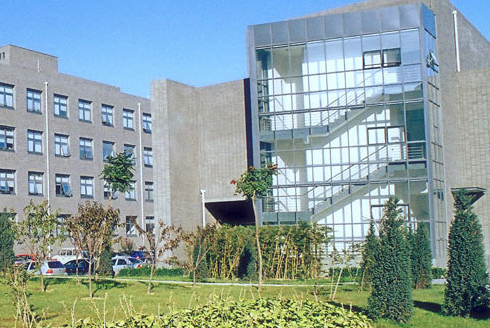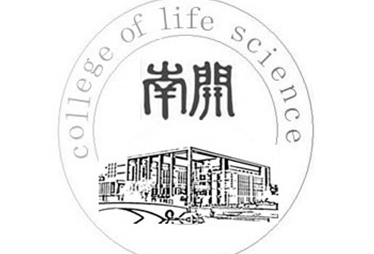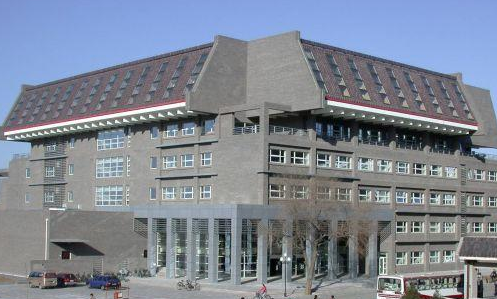Is it really 21st century science?
About the subject itself
I have asked many of my peers why they study biology, and the most common answers I get (including myself) are failed attempts at medicine. Medical school scores are very high, in addition to high clinical medicine, oral ophthalmology scores are well ahead of their school's basic admission scores.
In order to maximize the advantages of their scores and go to a good university, we bear the pain and abandon the medical theory, trying to save the country, can not personally go to the operating table to help the world, behind the scenes to study the activity of life itself, to explore the mystery of life is also interesting. Therefore, we have embarked on the road of life science, the "century discipline" of the 21st century.
In fact, the difference between life science and medicine is still relatively large, the former pays attention to practical operation, the latter tends to theoretical research.
Life science belongs to science and engineering in the college entrance examination and belongs to natural science. Although middle school biology requires cumbersome and illogical memory compared with other subjects such as mathematical physics, it still belongs to the science of exploring the field of nature and is a systematic knowledge system in the field of life, which can obtain specific and repeatable experimental results through experimental verification.
In terms of research content, life science is a science that studies life phenomena, reveals the law and nature of life activities, and the relationship between various biological systems.

The knowledge structure of the subject
1. Undergraduate course system
The main curriculum varies from institution to institution. Therefore, the first two semesters are the best time to change majors, at this time there is little difference in everyone's training plans, the content that needs to be made up is relatively small, and it is easy to keep up with the new professional arrangement.
According to the chronological order and depth of knowledge, the curriculum arrangement of life science majors in the undergraduate stage is roughly included
Professional basic courses: mainly distributed in freshman and sophomore years, including
· Mathematics and Physics courses: Advanced Mathematics, linear algebra, probability statistics, university physics and experiments.
· Other basic courses: Basic computer science, vb or C language, inorganic chemistry, analytical chemistry and experiments. In the sophomore year, I continued to study organic chemistry, physical chemistry and their experiments.
Core professional courses: I started to contact with them after my sophomore year. The most core courses include biochemistry, genetics, molecular biology and its experiments. On this basis, there will be some differences in curriculum arrangement between science and engineering life science departments.
In the more scientific departments, the training program will arrange other theoretical and experimental courses will be relatively more. For example, the curriculum of Tsinghua University includes general biology, cell biology, physiology, developmental biology, immunology, animal physiology experiment, molecular biology experiment, cell biology experiment, biophysics, neurobiology, bioinformatics, basic biostatistics, molecular mechanism of major diseases, biological research of brain diseases, genomics and epigenomics.
In the engineering department, it is necessary to spend more energy to learn engineering drawing, chemical principles, biological engineering, cell engineering, genetic engineering and other engineering courses.
The training purpose of the life science department is to enable students to systematically and solidly grasp the basic knowledge, basic theories and basic skills of biology, master the basic methods and means of biological science research, have a strong sense of innovation and practical ability, and have a deep understanding of the frontier and development trend of biology. Understand the basic knowledge of life, materials, energy, environment and other related disciplines, and be able to engage in scientific research, technology, education and other work in biological science and related fields.
The training purpose of the life science department is to enable students to systematically master the basic knowledge, basic theories and basic skills of biology, and enable them to systematically master the knowledge of bioengineering and biotechnology practice and have strong ability of engineering practice, research and development and design. Be able to engage in research, development and industrial production in the field of biotechnology, bioengineering and related disciplines.
2, subdivision direction and interdisciplinary
Biology is divided into many categories, according to different classification methods, corresponding to different subdivisions. In the Ministry of Education's undergraduate directory, under the Science directory, there is the Biological Sciences category, which has six majors: Biological sciences, biotechnology, bioinformatics, ecology, integrative Sciences, and neuroscience.
Biological science corresponds to the basic theory, the content is many and complicated, it is not easy to learn. Graduate school can choose one of the directions to further study. The dominant colleges and universities of biological science are Qingbei and Wu University, and the level of some agricultural and forestry colleges is also very high, especially China Agricultural University, where biological science is its ace major.
Biotechnology refers to the means and technology of using organisms and modifying organisms, such as fermentation, enzyme engineering, molecular breeding, transgene, organ transplantation, biopharmaceutical, etc., all belong to the category of biotechnology. The biotechnology professional level of agriculture and forestry universities is strong.

Bioinformatics, in essence, belongs to biotechnology, which uses computers to solve biological problems and is an interdisciplinary subject. The current bioinformatics, on the one hand to carry out gene sequencing, the establishment of various gene databases; On the one hand, the protein structure is analyzed; On the other hand, computer-aided drug design. It is also a profession with relatively easy employment and good prospects in the biological field.
Ecology is slightly different from the former and closer to environmental science. General courses include Introduction to Environmental Science, Microbiology, biochemistry, botany, soil science, animal biology, biostatistics, ecology, meteorology, GIS remote sensing, etc.
Integrated science is an interdisciplinary major opened by Peking University in 2014. The name "integrated" includes mathematics, physics, chemistry, biology, information and engineering.
Courses in this program include calculus and mechanics, quantitative molecular biology, biochemistry, quantitative cell biology, integrative thermodynamics, integrative chemical dynamics, electromagnetism, probability statistics, quantum mechanics, and fundamentals of spectroscopy.
In addition, the Life Science Joint Center, which is jointly developed in North Cheong Province, is committed to breaking the disciplinary barrier and exploring life science issues with the integration of multiple disciplines. For example, computational biology combined with computers, biological modeling combined with mathematics, and biophysics combined with physics. Biology is often the problem, not the method. Biology is regarded as the research background and object in various interdisciplinary disciplines, and the research means and methods are used to the best of their ability.
Neuroscience is also an interdisciplinary discipline that includes biology, psychology, computer science, and more. At present, there are few colleges and universities offering this major for undergraduates, and most colleges and universities only recruit graduate students for neuroscience majors.
At present, people's spiritual needs are increasingly prominent, and psychological problems have gradually become a social problem. But only from the perspective of psychology to sit on the argument may not be convincing enough for some modern scientistalists, open the black box between neural activity and physiological structure, with human observable ways to show the state of neural activity, seeking to explain the biological mechanism of theistic activity, is the subject of neuroscience. If you are interested, we recommend "Neuroreality" this non-profit neurocognitive science public account, which has a variety of interesting articles.
3. Is the 21st century really the century of life sciences?
The famous prediction that "the 21st century will be the century of biology" is often mocked in the field of biology. It was proposed by a physicist in the context of the dramatic and exciting global human genome project of the 1980s.
The Human Genome Project is a large-scale, transnational and interdisciplinary scientific exploration giant project. Its purpose is to uncover the secrets of 3 billion base pairs that make up 25,000 genes in the human body, so as to map the human genome, identify gene sequences, and achieve the ultimate goal of deciphering human genetic information.
At that time, the program, together with the Manhattan atomic bomb project and the Apollo program, was known as the three major scientific programs, and was another great project in the history of human science, known as the "moon landing program" of life sciences. At that time, biologists were eager to uncover the laws of genetic coding and explore the secrets of life. This is the historical background behind the famous prophecy.
Now that we are a fifth of the way through the 21st century, has it become the century of living things? Although the research and development needs of the pharmaceutical industry have increased in the three years of the epidemic, the major Internet giants also attach importance to the development of the health field, but as an ordinary person who is not in the front line of scientific research, may not be able to empathize with the above predictions. There is even a saying in the street that "biochemical ring materials, four sinkholes", and life science is ranked first among the disciplines called "pits", which is in stark contrast to the optimistic expectations of human life science in the last century.
So, what kind of discipline is life science, and what is its prospect and current situation? In the following "professional prospects" part, I will share my understanding with you in three aspects: scientific research, professional employment, and career change.
Prospects: Further study and employment

1. Scientific Research
If you are interested in life itself and want to explore it in a scientific way, then welcome to the field of life science research.
The training mode of domestic life science majors in the undergraduate stage is more research-oriented and encourages students to continue their studies, so the proportion of students going abroad for doctoral study is relatively high. The specific research retention rate depends on the setting of the institution you choose. Different institutions have different regulations. You can go to the official website to check the research retention situation of your favorite institution in previous years.
At Tsinghua University, for example, 40% of its graduates are eligible for postgraduate studies in China. 40%-50% to further their studies abroad; 10% employment. Students who have the intention to go abroad contact the seniors who have successfully got the offer to consult experience and suggestions.
One of the most orthodox ways to cultivate this discipline is to continue further study at home and abroad, participate in various academic conferences, publish papers, work in research institutes or universities, and concentrate on academics. The general work scenario is doing experiments in the laboratory, processing data, and writing papers. As long as you have a great interest and love for your research topic, everything else is a natural and well-developed reward.
However, it should be noted that the current academic field is different from the absolutely pure and absolutely ideal career of scientists in most people's childhood imagination, and it is increasingly becoming a job to a certain extent, a relatively niche industry.
There are many practitioners of scientific research, and true scientists are still a minority, just as artists are entertainers. As an industry, it has its KPI. If you do not want to be bound by the result theory of "thesis on hero" and only want to do the topic you are interested in without deliberately pursuing results, then in the selection of graduate students, you should know more about the laboratory style and choose the research environment that suits you.
At any time, there are very few real scientists, most of them are engineers.
2, professional employment
In his novel Brave New World, published in 1932, British writer Aldous Huxley predicted that one day humans would play the role of God and transform life.
If your interest in biology is not to explore the world, but to transform the world, then there are many directions in the field of biology that are biased toward industrialization, such as medicine, food, agriculture, forestry, animal husbandry, fishing, environmental protection, gardens and so on.
This kind of direction is more closely related to social needs and has more social value, and can enter the research and development position of the company in the future, or raise money to start a business. In school, I can also take advantage of social practice, production internship and other opportunities to practice in enterprises to understand the market dynamics.
3. Change careers
If you find in the process of studying in college that you are not interested in biology itself, the value drive is not strong enough, and you care more about employment opportunities, salaries and development prospects, then biology may be exactly the four sinkholes that netizens say for you.
The salary of undergraduate biology is not high, coupled with the physical exertion of experimental work is very hard, some people choose to enter the company as a non-technical work such as sales, more people may consider changing careers, public, teaching, Internet, finance, law... There are all kinds of success stories.

Many of my undergraduate classmates have successfully joined Internet companies or transferred to the department of computer science. In short, when you have the idea of changing careers in the process of biology learning, you should collect information in time, make up for your lessons, actively seek internships, and prepare to change careers.
If you change careers, it does not mean that the undergraduate knowledge is wasted. The importance of the Internet giant to the computer field and the vigorous development of the life and health industry indicate that the biological industry is an industry that will not decline, and it is an industry that capital and people are concerned about.
It is also very helpful to accumulate certain biological knowledge and master the biological background in the undergraduate course for future career change. Computer/financial talents with a biology background are highly sought after in the field of biological computing and pharmaceutical investment consulting.
If it is difficult to master in one field, break the discipline barrier and do the cross talent in the hot field of biology. The crossover talent is currently rare, can borrow the information difference between the professional to obtain development opportunities, eat a wave of information dividends.
However, for students who originally intended to cross the direction, the author recommends that you study basic subjects such as mathematics or computer science in the undergraduate period, and then rely on their mathematical and computer technology foundation to switch to the cross life science direction during the graduate school.
In contrast to the life sciences, which are more focused on knowledge accumulation, basic subjects such as mathematics, physics, and computer science can cultivate rigorous underlying logic and rational thinking, which will be helpful in the future to transfer to any other science.
To sum up, if you choose biology, I hope you can have an interest in it.
Biology is a specialized and impassable discipline compared with other sciences, poor mobility, more difficult to change careers, even if it is not as bad as the "sinkhole" described on the Internet, objectively there are some gaps with other basic disciplines. If there is no clear interest in the choice of major, and the utilitarian goal is put in a more important position, then the basic discipline will be a better major choice.

Professional overall cultural atmosphere
As a science and engineering subject with weak logic inference, the overall cultural atmosphere of the major is relatively relaxed compared with that of the major of mathematics and physics.
However, there is no way to go in vain in the world. Students with a mathematical background have strong logic ability, solid foundation and good ability migration. It is easy to transfer computers and finance, and it is easy to become sought-after talents in interdisciplinary disciplines.
However, there are always two sides of the matter, life science majors have always been a large enrollment of graduate students, and extreme situations such as vocational school students admitted to biological graduate students also occur. For students who have unsatisfactory college entrance examination results and want to further their studies, choosing the direction of life science is also a shortcut.
Biology has a large amount of memory and a small amount of logical reasoning. It is suggested that students who want to have a solid mathematical foundation can study by themselves or audit classes in their spare time. Because biology is a more complex object of study, so the relevant knowledge is relatively complex and not absolute, there is no formula theorem in biology, can not be strictly calculated, all the knowledge learned is found in the experiment.
If you want to have a further understanding of what you have learned, it is recommended to practice in the laboratory you are interested in during the undergraduate period to understand the research ideas and models of biology.
- ABB
- General Electric
- EMERSON
- Honeywell
- HIMA
- ALSTOM
- Rolls-Royce
- MOTOROLA
- Rockwell
- Siemens
- Woodward
- YOKOGAWA
- FOXBORO
- KOLLMORGEN
- MOOG
- KB
- YAMAHA
- BENDER
- TEKTRONIX
- Westinghouse
- AMAT
- AB
- XYCOM
- Yaskawa
- B&R
- Schneider
- Kongsberg
- NI
- WATLOW
- ProSoft
- SEW
- ADVANCED
- Reliance
- TRICONEX
- METSO
- MAN
- Advantest
- STUDER
- KONGSBERG
- DANAHER MOTION
- Bently
- Galil
- EATON
- MOLEX
- DEIF
- B&W
- ZYGO
- Aerotech
- DANFOSS
- Beijer
- Moxa
- Rexroth
- Johnson
- WAGO
- TOSHIBA
- BMCM
- SMC
- HITACHI
- HIRSCHMANN
- Application field
- XP POWER
- CTI
- TRICON
- STOBER
- Thinklogical
- Horner Automation
- Meggitt
- Fanuc
- Baldor
- SHINKAWA
- Other Brands




































































































































